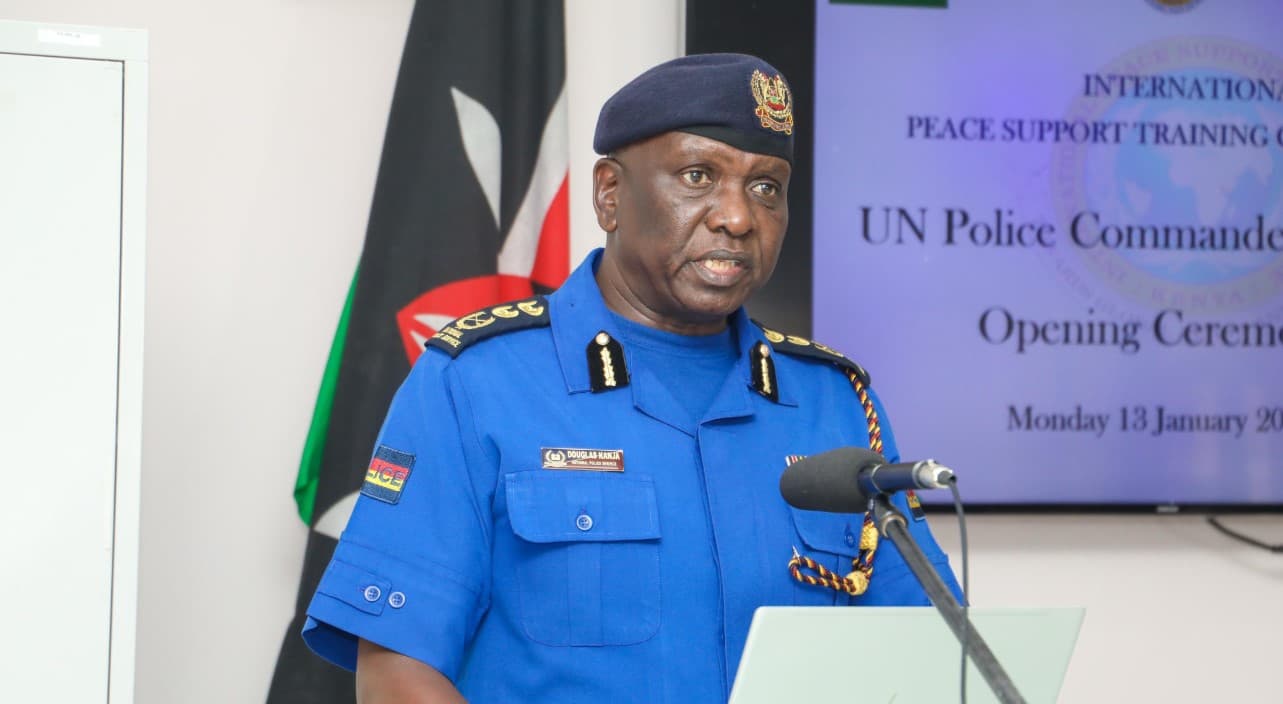We're loading the full news article for you. This includes the article content, images, author information, and related articles.
The Inspector General’s pledge confronts a crisis of public trust as rights groups report a 450% spike in enforced disappearances in 2024, while the state’s own data on the missing remains inconsistent.

NAIROBI – In the face of mounting public alarm over a surge in missing persons cases and alleged abductions, Inspector General of Police Douglas Kanja has publicly affirmed the National Police Service's (NPS) duty to investigate every reported case to its definitive conclusion. This commitment, reiterated in early 2025, arrives at a critical juncture for Kenya, as official assurances clash with harrowing statistics from human rights watchdogs and the lived experiences of families searching for loved ones.
The statement from the police chief follows a period of intense scrutiny over the role of state security agents in numerous disappearances. While the NPS has formally denied any involvement in abductions, stating its constitutional mandate is to arrest offenders, not abduct citizens, the data paints a troubling picture for the nation.
According to a report released on May 7, 2025, by the civic coalition Missing Voices, Kenya witnessed an unprecedented 450% increase in enforced disappearances in 2024, rising to 55 cases from 10 in the previous year. The coalition noted this was the highest number it had ever recorded. This spike was largely attributed to periods of political unrest, particularly the Gen Z-led protests against the Finance Bill 2024.
Similarly, the Kenya National Commission on Human Rights (KNCHR) reported on December 26, 2024, that it had recorded 82 cases of abduction or enforced disappearance since June of that year. The commission condemned the acts as torture and a regression to a darker period in Kenyan history.
The government's own figures have been inconsistent. On September 27, 2024, Interior Minister Kithure Kindiki officially acknowledged for the first time that 132 people were reported missing in connection with the anti-government protests. This stood in stark contrast to a statement by his predecessor, Kipchumba Murkomen, who on May 14, 2025, admitted the government lacks official, centralized statistics on the matter, noting that police had only recorded 13 cases since the start of that year.
For families of the missing, the Inspector General’s promise of conclusive investigations is tested by significant systemic challenges. Kenya currently lacks a national database for missing persons, with each police station maintaining its own separate register. Families are required to report a case to the nearest police station, but many have expressed frustration with the pace and perceived lack of priority given to these investigations.
The primary body for police accountability, the Independent Policing Oversight Authority (IPOA), is itself facing severe constraints. On August 30, 2025, IPOA Chairperson Ahmed Issack Hassan disclosed that the authority was operating with only 77 investigators against a required 440, a major impediment to handling the high volume of complaints.
Further complicating the path to justice is Kenya's legal framework. The country has signed but not yet ratified the International Convention for the Protection of All Persons from Enforced Disappearance. Consequently, enforced disappearance is not specifically criminalized under domestic law, forcing prosecutors to rely on broader charges like kidnapping or murder, which activists argue do not capture the full gravity of the state-implicated crime.
The crisis has been amplified by several high-profile cases that have gripped the nation. In January 2025, IG Kanja was personally summoned by the High Court to explain the whereabouts of three men—Justus Mutumwa, Martin Mwau, and Karani Muema—who were abducted in Mlolongo in December 2024. The IG and the Director of Criminal Investigations told the court the men were not in police custody, but the case brought unprecedented judicial pressure on the police leadership.
More recently, the disappearances of individuals like cartoonist Gideon Kibet, known as Kibet Bull, and his brother Rony Kiplangat in December 2024, sparked public uproar, with many of the abducted being vocal critics of the government on social media platforms. While some were later released, their cases highlighted a disturbing pattern of abductions carried out with impunity.
As the Inspector General pledges to bring resolution to these cases, the Kenyan public and human rights organizations are watching closely. The fulfillment of this duty is not merely a matter of closing case files; it is a fundamental test of the National Police Service's commitment to transparency, accountability, and the rule of law in a nation demanding answers.
Keep the conversation in one place—threads here stay linked to the story and in the forums.
Sign in to start a discussion
Start a conversation about this story and keep it linked here.
Other hot threads
E-sports and Gaming Community in Kenya
Active 9 months ago
The Role of Technology in Modern Agriculture (AgriTech)
Active 9 months ago
Popular Recreational Activities Across Counties
Active 9 months ago
Investing in Youth Sports Development Programs
Active 9 months ago
Key figures and persons of interest featured in this article